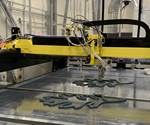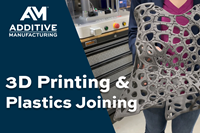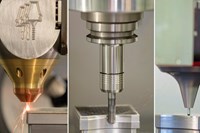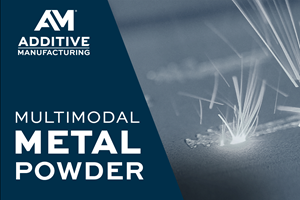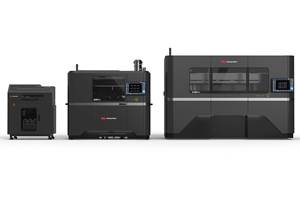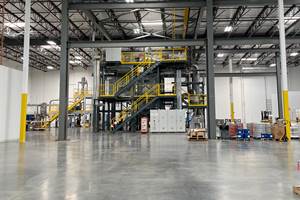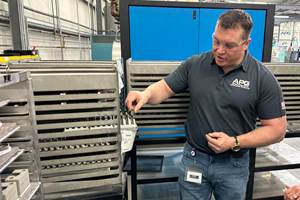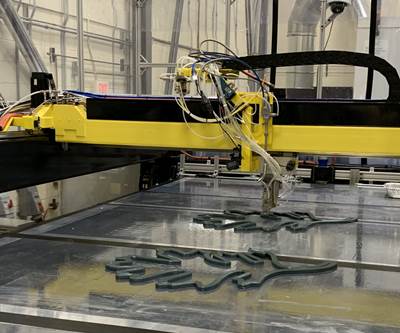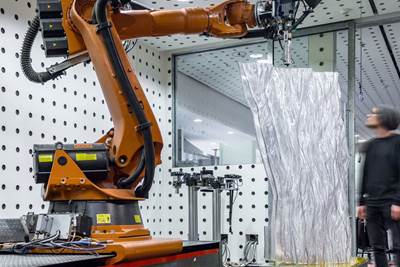Selective laser sintering (SLS) 3D printers generally operate with thermoplastic powders. The material is transformed into a desired shape by melting it together using one or more lasers, but that final thermoplastic product can later be un-formed with the reintroduction of heat.
By contrast, thermoset polymers are transformed into a geometry through a chemical reaction that creates crosslinks in the material. Thermosets that are heated after this reaction might become soft and bendable, but they will not remelt as a thermoplastic would. As a result thermosets can provide higher thermal resistance, less shrinkage and warpage, and isotropic properties. Thermosets are commonly used in stereolithography and digital light processing (DLP) style printers, but a partnership between 3D printing service provider Ricoh 3D and materials manufacturer Tiger is bringing these material possibilities to selective laser sintering (SLS).
Headquartered in Wels, Austria, Tiger is a powder coating and digital ink manufacturer that has stepped into additive manufacturing (AM) materials with thermoset plastics that it provides to Ricoh 3D, the 3D printing arm of Ricoh based in the UK. Three Tigital 3D-SET thermoset powders are currently available, optimized for precision, performance and flame retardant properties, although any of the three can be further customized with fillers and chemistry adjustments to meet application needs.
“The 3D printing of thermosets makes it possible to achieve performance for very demanding applications at a lower cost compared to thermoplastic high-performance polymers, with no issues such as curling and warping,” says Dr. Enrico Gallino, material specialist at Ricoh 3D.
Lower Temperature, Faster SLS 3D Printing
SLS 3D printing with these thermoset powders is a bit different than 3D printing with thermoplastics. The laser is applied not to melt the material, but to initiate the chemical reaction that forms bonds across the layers of powder. Selective laser sintering can therefore happen at lower temperatures, below 70°C, which helps to avoid heat-related warpage and shrinkage which can happen with SLS thermoplastics.
According to Ricoh, the low processing temperature makes it possible to print flat parts with customizable mechanical properties and good dimensional stability. Printing speeds are also faster than with thermoplastics, but SLS thermoset parts do require a post-print cure in an oven. This process takes about 45 minutes at a temperature around 180°C, the company says.
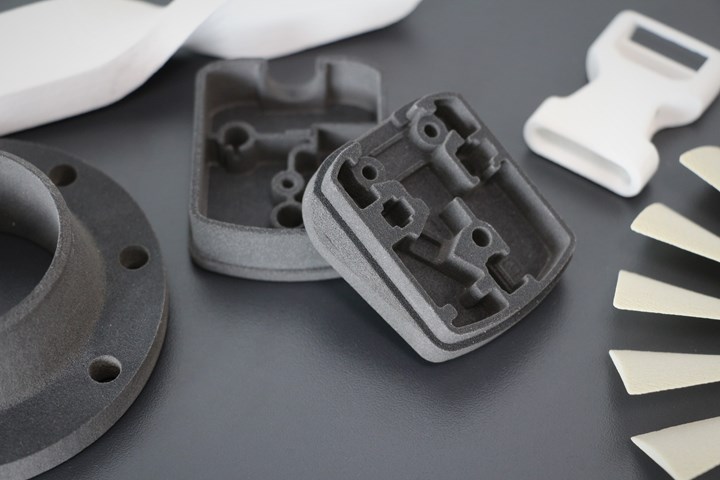
The Tigital 3D-Set thermoset powders for SLS are available in flame retardant chemistries, suitable for electrical housings and other applications with potential fire risks. Photo Credit: Ricoh
The ability to 3D print thermosets via SLS opens new applications for these materials, especially for larger parts than typically possible with stereolithography-style printers. According to Ricoh, SLS thermoset prints have isotropic properties regardless of print orientation, good resolution and high-quality surface finish; the chemistry of the material can also be adjusted for better adhesion of anticipated powder coatings or other surface finishes. Additionally, the thermoset powder is more stable than liquid resins, and can be printed via SLS without the need for support structures.
Insulating properties and high dielectric strength make thermosets suitable for electrical enclosures, among other applications.
Current and potential applications for SLS thermosets include parts for transportation markets, as well as electrical assemblies. Thermoset polymers can provide good insulating properties and high dielectric strength, making them well suited to enclosures that protect electronics against short circuiting, dust and moisture.
The Tigital 3D-Set materials and Ricoh/Tiger collaboration were first introduced at Formnext 2019. “In the last year we’ve worked hard to improve the properties of the materials, as well as their printability,” Dr. Gallino says. “We’ve released three grades of material, with the ability to color and print across multiple platforms. We have also provided sample parts to customers for testing, with extremely positive feedback across companies in industries including automotive, electrical, industrial, railway and aerospace.”
SLS thermoset parts are currently available through Ricoh; powders can be purchased directly from Tiger and are compatible with any selective laser sintering 3D printer with an open material platform, the company says.
Related Content
Video: Multimodal Powders for Metal 3D Printing
Rather than uniform particle diameters, multimodal powders combine particles of different sizes. In this video, how and why Uniformity Labs produces multimodal metal powders for additive manufacturing.
Read MoreDesktop Metal X-Series for Metal, Ceramics Additive Manufacturing
The X-Series is said to offer a differentiated approach to binder jetting enabled by Triple ACT — an advanced compaction technology for dispensing, spreading and compacting powders during the binder jet printing process.
Read MoreMultimodal Powders Bring Uniform Layers, Downstream Benefits for Metal Additive Manufacturing
A blend of particle sizes is the key to Uniformity Labs’ powders for 3D printing. The multimodal materials make greater use of the output from gas atomization while bringing productivity advantages to laser powder bed fusion and, increasingly, binder jetting.
Read MoreSinter-Based Additive Manufacturing Finds a Place Alongside MIM, Press and Sinter at APG
Powder metallurgy company Alpha Precision Group (APG) is applying a particular class of metal 3D printing technology for both rapid iteration in development and flexibility in production.
Read MoreRead Next
3D Printed Prefab Homes, Made from Composite and UL-Certified
Mighty Buildings wants to change the construction industry with prefabricated houses 3D printed on demand from thermoset polymer composite. Two such buildings have already been installed.
Read MoreLarge-Scale Thermoset Composite AM System Launched
The Reactive Additive Manufacturing (RAM) system is said to be the world’s first large-scale additive manufacturing system compatible with thermoset resins.
Read More3D Printing Brings Sustainability, Accessibility to Glass Manufacturing
Australian startup Maple Glass Printing has developed a process for extruding glass into artwork, lab implements and architectural elements. Along the way, the company has also found more efficient ways of recycling this material.
Read More

.jpg;width=70;height=70;mode=crop)

